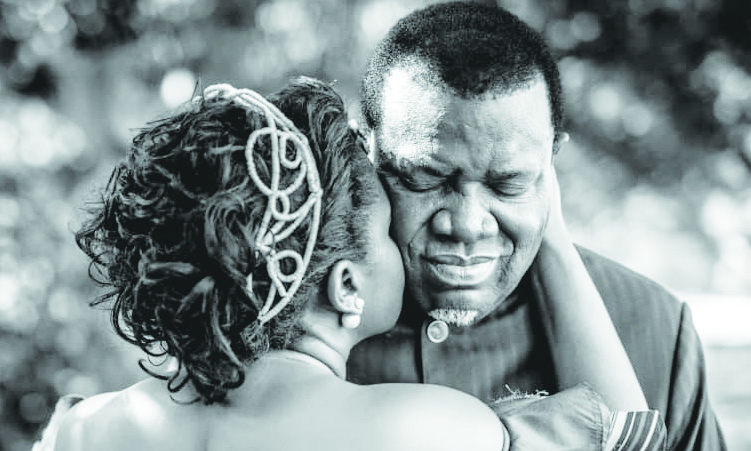On 19 June, The Namibian published an article titled ‘Otjiramue practice could fuel child rape’.
Several cultural pundits have spoken about this practice and I would like to gooi ’n stuiwer in die armbeurs as they would say in Afrikaans.
‘Tjiramwee’ is a cultural practice among Otjiherero-speaking communities but is known to many other Namibians.
Some abhor it as incest or see it as an abomination (horrible). Some are curious to know more; others believe it deserves to be preserved.
I will attempt to unpack the practice and clarify misunderstandings.
MISUNDERSTANDINGS
Many see tjiramwee mainly as a sexual act between people who are closely related and hence regard it as incest.
Even some younger members of Otjiherero-speaking communities detest the practice, saying it promotes sexual relationships between people from the ‘same blood’.
Other Namibians understand it as a sexual act between an uncle and his nieces (sisters’ daughters) or the sexual act between a man and his son’s bride before he hands her over to his son.
It is also believed that the tjiramwee (particularly females) has no right whatsoever to turn down sexual advances from her tjiramwees.
Against this background some conclude that Otjiherero-speaking communities are generally promiscuous and horrible when it comes to sexual orientation.
Who is your tjiramwee?
Tjiramwees are cross cousins, i.e. the children of your aunties and uncles irrespective of their gender. Thus, people from the same sex are also tjiramwees.
As in some other cultures, parallel cousins (children of your father’s brothers or mother’s sisters) are brothers and sisters in Otjiherero culture not cousins (tjiramwees).
In Otjiherero culture, an older brother or sister is called erumbi (plural: omarumbi) and a younger brother or sister is omuangu (plural: ovangu).
Male and female siblings are omutena (plural: ovatena) whether or not they are an older or younger brother or sister.
Thus, the children of your father’s younger brothers or mother’s younger sisters are your ovangu or ovatena while those of your father’s older brothers or mother’s older sisters are your ovatena.
Your mother’s or father’s tjiramwees are, by extension, also your tjiramwees. That is why you will find a 70-year-old pensioner (male or female) being a tjiramwee to a 15-year-old scholar (male or female).
As Otjiherero-speaking communities are closely connected (related) through the eanda (matrilineage) and oruzo (patrilineage), the tjiramwee is also extended to many people to whom they are connected through the eanda and oruzo.
Importantly, people to whom one is not connected, i.e. with no family ties – for example, other ethnic or racial groups – are also generally perceived to be tjiramwees.
LINGUISTIC ANALYSIS
The word ‘tjiramwee’ is derived from the verb ‘rama’ which means ‘to be choked’, (choke – active) or ‘ramwa’ (choked by – passive).
When one is choked s/he has ‘severe difficulty in breathing because of a constricted or obstructed throat or lack of air’.
So, the tjiramwee will ‘ramuna’, meaning relieve, the person of this difficulty.
Breathing difficulties figuratively mean having personal problems from which one needs relief.
These problems range from personal weaknesses (including difficulties related to courtship) to failures in life.
‘Tjiramwee’ maintains accepted cultural norms and protocols.
One is the virtue of respect. In every society there are hierarchies: Seniority in terms of age; position in society (chief vs subordinates); relationship (teacher vs pupil, employer vs employee), etc.
These hierarchies are also observed between ‘tjiramwees’.
‘Tjiramwee’ is a practice whereby people are counselled on all sorts of personal problems, ranging from self-doubt to huge financial problems as alluded to earlier.
Your ‘tjiramwee’ is your confidante to whom you run when you have problems.
One confides in his/her ‘tjiramwee’ because it is generally accepted it is the ‘tjiramwee’s’ duty to find ways to relieve his/her ‘tjiramwee’ of personal problems which others cannot tackle.
Your ‘tjiramwee’ keeps your secrets. S/he may be playful and jokey but s/he is loyal to you and will defend you against your adversaries.
MARRIAGES
Tjiramwees can get married. These are by no means arranged or forced marriages.
The Otjiherero-speaking community passed that stage many years ago.
If tjiramwees fall in love, go through courtship… they are allowed to get married. It is not regarded as incest in Otjiherero culture.
By the way, not many people marry their closest tjiramwees.
Most importantly, girls are not raped as part of tjiramwee – this is far from true.
It is a perception created by those who refuse to accept that African philosophy is founded on the principle of respect for human dignity as a framework for making ethical decisions.
It is against this background that tjiramwee is practiced: Lift the spirits, be cheerful, s/he is not better than you as s/he also has some shortcomings like everybody else; don’t look down on yourself for you will overcome this as well.
- *NK Mbaeva is chief education officer: African languages at the National Institute for Educational Development. This article is written in his personal capacity; kaunomuinjo@gmail.com
Stay informed with The Namibian – your source for credible journalism. Get in-depth reporting and opinions for
only N$85 a month. Invest in journalism, invest in democracy –
Subscribe Now!






